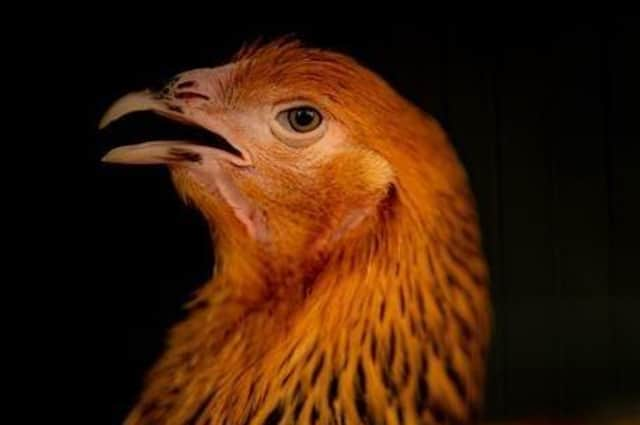UFU poultry expert: Highly potent bird flu likely to be an annual danger for NI


David McClure, the UFU’s poultry policy officer, was speaking to the News Letter after reports of wild birds behaving strangely and dropping dead in parks across Northern Ireland.
Click here: Watch out for spinning ‘drunken’ swans as bird flu grips public parks across Northern Ireland
Advertisement
Hide AdAdvertisement
Hide AdThe strain of bird flu which is causing major concern for farmers is called H5N1.
This was first confirmed in Monaghan, near the Armagh border, on December 3.
As of December 5 it had been confirmed in wild birds at The Waterworks and the Harbour Estate, both in north Belfast, and Monlough Lake near Carryduff.
As of Tuesday morning, two premises – one in Aughnacloy, Co Tyrone, one in Broughshane, Co Antrim – had officially tested positive after earlier suspected outbreaks.
Advertisement
Hide AdAdvertisement
Hide AdMr McClure urged all fowl owners to register their animals with the authorities and apply tight biosecurity measures, saying that this is not the first time such a virulent “high-pathogen” brand of avian flu has reached Northern Ireland.
“It does point towards that this is going to be a seasonal concern, moving forward,” he said.
“I’d say they [farmers] are very worried. They can do their best, but there’s so much we don’t know about this – we don’t know if our best will be good enough.
“It’s probably the single biggest concern to the industry at this minute in time.”
Advertisement
Hide AdAdvertisement
Hide AdHe added: “Last winter saw the first incursion of high-path strains within Northern Ireland. This is another high-path strain.
“Why would the migratory birds bring it two years in a row, and then decide never to bring it again for 10 years?
“If I was a betting man, I don’t think I’d be betting that is going to happen.
“It’s probably going to be a feature of our industry.”
He added: “I’m not sure where the strain came from this year, but last year the migratory path came from as far away as Kazakhstan.
Advertisement
Hide AdAdvertisement
Hide Ad“It’s hard to believe some things move as far away as that to here.
“How can you control that? You can’t put a sign up in the Irish Sea to say: ‘Tell you what, you can’t come in here’.
“That’s your main transmission of the disease – the movement of migratory birds.”
As a rough guesstimate, he imagines there are perhaps six million or so poultry birds alive in Northern Ireland at any one time.
Advertisement
Hide AdAdvertisement
Hide AdAll it takes for bird flu to infect an entire farm is for someone to stand in a single wild bird dropping, then traipse it into a coop.
And if an animal falls sick, that triggers an automatic cull of the entire flock.
Whilst the Department for Agriculture, the Environment, and Rural Affairs will compensate a farmer for the value of the dead birds, such an infection will put the building out of action for months whilst it is being disinfected – costing valuable time and effort, which farmers have no similar entitlement to recoup.
Click here: New body should be set up to coax terrorists into giving up power, says major new report
Advertisement
Hide AdAdvertisement
Hide AdFor more news and opinion, return to the News Letter’s homepage >>> here <<<
——— ———
A message from the Editor:
Thank you for reading this story on our website. While I have your attention, I also have an important request to make of you.
With the coronavirus lockdowns having had a major impact on many of our advertisers — and consequently the revenue we receive — we are more reliant than ever on you taking out a digital subscription.
Advertisement
Hide AdAdvertisement
Hide AdSubscribe to newsletter.co.uk and enjoy unlimited access to the best Northern Ireland and UK news and information online and on our app. With a digital subscription, you can read more than 5 articles, see fewer ads, enjoy faster load times, and get access to exclusive newsletters and content.
Visit
now to sign up.
Our journalism costs money and we rely on advertising, print and digital revenues to help to support them. By supporting us, we are able to support you in providing trusted, fact-checked content for this website.
Ben Lowry, Editor